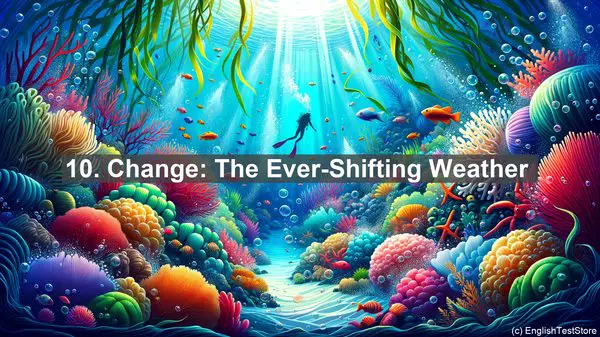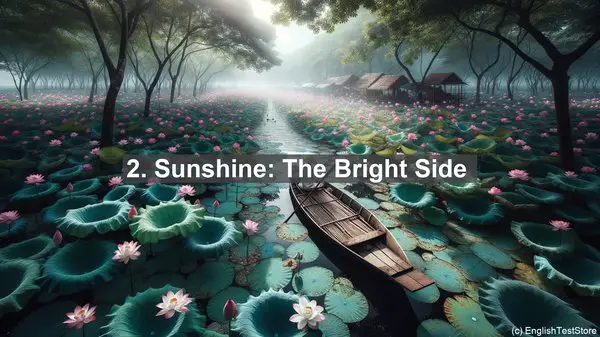Introduction: The Language of Weather
Weather is a topic that affects us all, and being able to describe it accurately is essential. Today, we’re going to focus on the verbs that best capture the various weather conditions. So, let’s get started!

1. Rain: The Gentle Shower
When we talk about rain, we often use the verb ‘to drizzle.’ It’s a light, gentle rain that can create a calming atmosphere. For example, ‘It’s drizzling outside, perfect weather for a cozy day indoors.’
2. Sunshine: The Bright Side
On the other end of the spectrum, we have ‘to beam.’ This verb perfectly captures the radiant nature of the sun. You can say, ‘The sun is beaming today, making everything look more vibrant.’
3. Wind: The Invisible Force
When it comes to wind, ‘to gust’ is often used. It signifies a sudden, strong burst of wind. For instance, ‘The wind is gusting, so be careful when you’re outside.’
4. Snow: The Winter’s Gift
For snowfall, ‘to flurry’ is a commonly used verb. It describes the light, swirling motion of snowflakes. You can say, ‘It’s flurrying outside, creating a magical winter scene.’
5. Heat: The Intense Warmth
‘To scorch’ is a verb that denotes extreme heat. It’s often used during heatwaves. For example, ‘The sun is scorching today, so make sure to stay hydrated.’

6. Cold: The Chilling Breeze
When it’s very cold, we use ‘to freeze.’ It signifies the extreme drop in temperature. You can say, ‘It’s freezing outside, so bundle up before you go out.’
7. Thunder: The Roaring Sound
During a thunderstorm, the verb ‘to rumble’ is fitting. It captures the low, continuous sound of thunder. For instance, ‘The thunder is rumbling in the distance, a sign of an approaching storm.’
8. Clouds: The Sky’s Blanket
When clouds move swiftly, ‘to billow’ is the verb to use. It describes their expansive, flowing motion. You can say, ‘The clouds are billowing, creating a dramatic sky.’
9. Fog: The Mystical Shroud
‘To shroud’ is a verb that perfectly encapsulates the nature of fog. It’s like a thick, mysterious blanket. For example, ‘The city is shrouded in fog, creating an eerie atmosphere.’
10. Change: The Ever-Shifting Weather
Lastly, ‘to fluctuate’ is a verb that describes the constant changes in weather. You can say, ‘The weather is fluctuating today, so be prepared for sudden shifts.’
